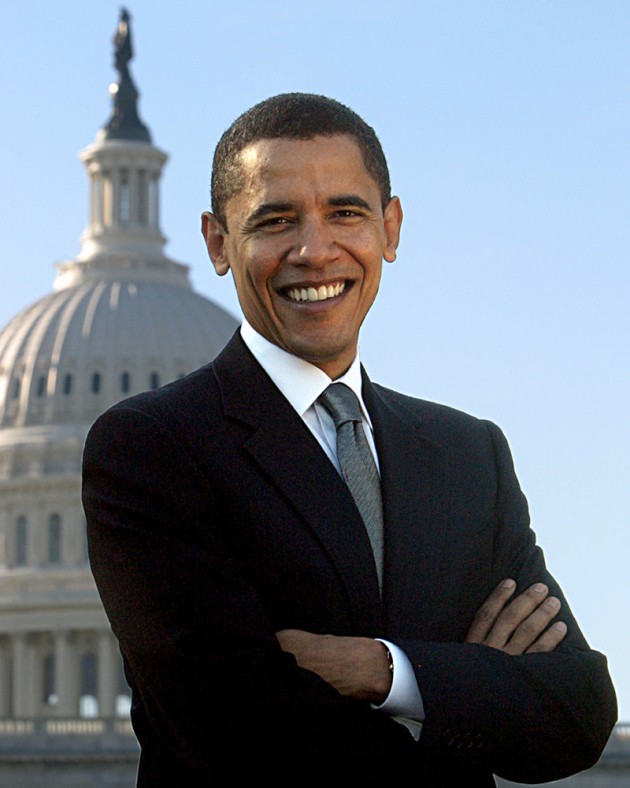University cannot afford a presidential debate

Barack Obama talks about it. John McCain talks about it. And this election season, money is not only a hot topic during the presidential debates — it was the major factor in USF’s decision not to apply to host one.
“Sponsoring a debate can be expensive and because of University budget cuts we don’t have the means to fund this,” USF spokeswoman Lara Wade said. “It doesn’t fit in with the objectives of our strategic plan right now.”
To host tonight’s final presidential debate, Hofstra University spent $3.5 million to transform the David S. Mack Sports and Exhibition Complex into a debate hall, as well as alter the Physical Fitness Center next door to serve as a media center for the 3,100 journalists credentialed to cover the event, Hofstra University media relations reported.
Similarly, the University of Mississippi, which held the first presidential debate on Sept. 26, spent about $5.5 million preparing for it, though $1.5 million of involved infrastructure changes that would benefit the campus long term, said Andy Mullins, special assistant to the chancellor of the university.
All universities interested in hosting one of the debates must undergo an application process, which includes creating a proposal, following site and facility guidelines — such as mandating a venue of at least 17,000 square feet with a 4-foot-tall, 65-foot-wide stage and an indoor humidity level not to exceed 50 percent — and a $7,500 nonrefundable fee.
After the application process, members of the Commission on Presidential Debates (CPD) — a nonpartisan nonprofit group that has administered the debates since the late ’80s — review the proposal, talk to the university and visit the facilities to determine which sites would work best. This year, 19 universities applied for four spots. The only Florida institution was the University of Miami.
Once a university is selected, it must pay $1.35 million to the CPD for producing the debate and cover the costs for building renovations, hotel accommodations, catering services, transportation and equipment, among other things.
As the University copes with state funding losses totaling $54 million over the past two years, making the decision not to apply wasn’t all that difficult, Wade said.
“Right now, we chose to spend our resources in other ways,” she said. “In the future, maybe. It all depends on the financial outlook of the University.”
More than a decade ago, USF co-sponsored the vice presidential debate between Al Gore and Jack Kemp with the St. Petersburg Times. The event was held at Mahaffey Theater in the Bayfront Center, and USF’s primary responsibility was to host a VIP reception and debate watch party, said USF St. Petersburg spokeswoman Holly Kickliter.
In 1999, when the Times submitted another bid to serve as a presidential sponsor in the 2000 presidential election, the newspaper reported that hosting the debate cost close to $1 million, though the lead sponsor — in this case, the Times — could recruit companies to defray these expenses.
Should the Times or another organization apply for a bid in the future, Wade said the University could decide to partner with it, if USF was given the offer. Money would be a factor in the decision, however.
“In terms of increasing visibility for the University and engaging people in the democratic process, there’s nothing better than hosting a debate, but when you’re in a difficult economic situation, people sometimes question such priorities,” USF political scientist Susan MacManus said.
For the University of Mississippi, the chance to be a part of history outweighed the expense.
“No site in Mississippi had ever hosted one, so we felt it was a good time to get the message out about our university,” Mullins said. “The cost goes up every four years. In the future, it might be cost prohibitive for us to do this. We thought it was a good investment.”
In addition to preparing the venue for a presidential debate, this investment often includes creating special programs and other activities to get the university community involved. When USF co-sponsored a debate, MacManus and other University employees created forums, library exhibits and watch parties for the other debates.
“It was a massive amount of work, but it helped us reach out to the community at large,” she said.
Though tonight’s debate will take place more than 1,000 miles away, students can watch it live at 9 p.m. on most major news networks. If no major sporting events are scheduled, Beef ‘O’ Brady’s on campus will air the debate.







